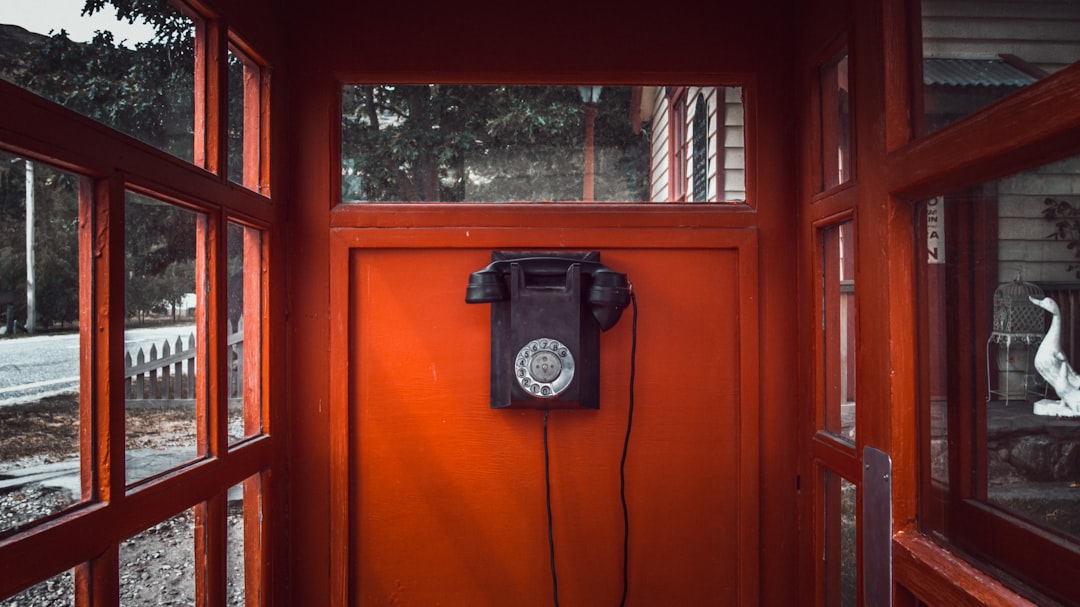Robocalls have become a significant issue in South Carolina, with automated marketing messages disrupting residents' lives. While technology has made it harder to enforce do-not-call lists, South Carolinians have legal options against unauthorized telemarketing activities. They can file complaints, consult specialized robocall lawyers or attorneys, and explore carrier-provided blocking tools. Notable legal victories against robocallers have set precedents for compensation and deterrence. Combating robocalls involves a mix of technology and legal expertise from South Carolina-based firms. Residents are encouraged to take proactive steps, document incidents, and connect with these specialists for effective solutions.
In the digital age, automated calls or ‘robocalls’ have become a pervasive nuisance in South Carolina. These unwanted phone calls from prerecorded messages can disrupt peace of mind and pose potential risks. Understanding the impact of robocalls is the first step to combating them effectively. This guide navigates the legal landscape, offering insights into anti-robocall laws in SC, with practical advice on identifying and blocking these calls. It explores various options, from hiring a robocall lawyer to utilizing technological solutions, and provides resources for affected residents, empowering them to take control.
- Understanding Robocalls and Their Impact in South Carolina
- The Legal Framework: Anti-Robocall Laws in SC
- How to Identify and Block Automated Calls
- Navigating Options: Robocall Lawyer vs. Attorney vs. Law Firm
- Steps to Take When Targeted by Robocalls
- Case Studies: Successful Robocall Litigation in South Carolina
- The Role of Technology in Combating Robocalls
- Resources and Support for SC Residents Affected by Robocalls
Understanding Robocalls and Their Impact in South Carolina
Robocalls, or automated telephone calls, have become a ubiquitous yet unwanted nuisance across the nation, including South Carolina. These pre-recorded messages, often used for marketing purposes, can be particularly intrusive and frustrating for residents. With advancements in technology, robocallers have found new ways to bypass traditional do-not-call lists, leading many South Carolinians to feel overwhelmed and helpless against this modern annoyance.
In South Carolina, as in many other states, the impact of robocalls extends beyond mere irritation. They can disrupt daily life, waste valuable time, and even contribute to identity theft risks. When these automated calls persist despite efforts to stop them, it highlights a growing need for effective solutions. Fortunately, South Carolinians have options, including consulting with a robocall lawyer or attorney who specializes in this area, exploring legal avenues, and joining community-led initiatives to combat this modern challenge.
The Legal Framework: Anti-Robocall Laws in SC
In South Carolina, the fight against automated calls, or robocalls, to cell phones is regulated by various legal frameworks designed to protect consumers from unwanted and fraudulent communication practices. The Telemarketing and Consumer Fraud Act (TCFA) is a key piece of legislation that prohibits unauthorized telemarketing activities, including the use of automatic dialing systems and prerecorded messages without prior express consent from recipients. This law grants South Carolina residents significant rights against robocalls, allowing them to file complaints with the Attorney General’s office and seek legal action against offending parties.
Robocall lawyers and attorneys in South Carolina play a crucial role in navigating these legal landscapes, helping individuals and businesses combat unwanted calls. Specialized law firms focused on robocall cases offer their expertise by providing representation for those who have been victimized by fraudulent or harassing automated calls. These professionals guide clients through the legal processes, ensuring they receive the protection and redress available under SC’s anti-robocall laws.
How to Identify and Block Automated Calls
In today’s digital era, folks in South Carolina, like many across the nation, are plagued by unwanted automated calls to their cell phones. Often referred to as robocalls, these pre-recorded or artificial messages can be disruptive and even harassing. But don’t just sit back and suffer through them—there are ways to fight back and protect yourself from this modern nuisance.
To identify and block these automated intrusions, start by recognizing the telltale signs: use of a blocked or unknown number, scripts or pre-recorded messages, and repeated calls from the same source. Next, consider utilizing tools provided by your mobile carrier to filter out such calls. Many carriers offer built-in call blocking features or apps that can significantly reduce the volume of robocalls you receive. Alternatively, consult with a robocall lawyer South Carolina, robocall attorney South Carolina, or contact a reputable robocall law firm South Carolina to explore legal options and leverage current robocall laws for your protection. These professionals can guide you on blocking calls from specific numbers or even entire categories of callers.
Navigating Options: Robocall Lawyer vs. Attorney vs. Law Firm
Navigating the world of automated calls, or robocalls, can be overwhelming, especially when trying to determine the best course of action to stop them. In South Carolina, residents have several options when it comes to dealing with unwanted robocalls to their cell phones. One choice is to consult a robocall lawyer who specializes in representing clients affected by these intrusive calls. These legal professionals can provide guidance on understanding your rights and exploring potential legal remedies.
Alternatively, individuals might opt to engage the services of a robocall attorney or contact a reputable robocall law firm. These options offer similar expertise but may also include additional support in terms of managing case load and providing comprehensive legal assistance. When searching for representation, it’s essential to consider firms or attorneys specifically focused on robocall-related cases, ensuring they have the knowledge and resources to effectively address these issues in South Carolina.
Steps to Take When Targeted by Robocalls
If you’re receiving unwanted automated calls to your cell phone in South Carolina, there are several steps you can take to combat this issue. First, identify the caller. Check if they are a known robocall or telemarketing company; many phones have built-in features that can help block these numbers. Consider using call-blocking apps or tools provided by your carrier for additional protection.
Next, document each incident, including the date, time, and specific messages received. This information is valuable if you decide to take legal action. Contacting a robocall lawyer South Carolina or consulting with a robocall attorney South Carolina can provide you with options. Reputable robocall law firms South Carolina specialize in these cases and can guide you through the process, helping you stop these intrusive calls and seek compensation if eligible.
Case Studies: Successful Robocall Litigation in South Carolina
In recent years, several successful litigation cases against automated or robocalls have been documented in South Carolina, offering a glimmer of hope for those affected by unwanted phone marketing. One notable case involved a consumer who received numerous robocalls from an out-of-state marketing firm, despite being on the National Do Not Call Registry. With the help of a robocall lawyer South Carolina, they filed a class-action lawsuit, arguing that the company violated both state and federal laws. The court ruled in favor of the plaintiff, awarding substantial damages and setting a precedent for similar cases across the state.
This win highlights the effectiveness of legal action against robocallers. Many victims have turned to robocall attorneys South Carolina and robocall law firms South Carolina to combat this growing issue. These professionals have successfully navigated complex legal landscapes, ensuring that businesses adhere to regulations and respect individual privacy. Through persistent efforts, they’ve secured judgments and settlements, providing financial relief to affected residents and serving as powerful deterrents against future violations.
The Role of Technology in Combating Robocalls
In today’s digital era, technology plays a pivotal role in combating the deluge of automated calls or robocalls that flood cell phone lines across South Carolina and beyond. With advancements in artificial intelligence (AI) and machine learning, innovative solutions are emerging to identify and block these unwanted calls. AI-powered call-blocking apps and software utilize sophisticated algorithms to analyze caller patterns, detect robocalls with high accuracy, and filter them before they reach the recipient’s phone.
Robocall lawyers and attorneys in South Carolina, along with specialized law firms, are leveraging this technology to assist clients in navigating the complex legal landscape surrounding robocall regulations. These experts employ cutting-edge tools to trace call origins, gather evidence of fraudulent activities, and represent victims in legal actions against perpetrators. By combining legal expertise with technological prowess, robocall lawyers South Carolina, for instance, can offer comprehensive solutions to mitigate the impact of these annoying and often illegal calls, ensuring a safer and more secure communication environment for residents across the state.
Resources and Support for SC Residents Affected by Robocalls
South Carolina residents dealing with an excessive number of automated calls to their cell phones have several resources available to them. Many law firms, including those specializing in robocall litigation, offer consultations and legal representation to combat this growing issue. A robocall lawyer South Carolina or robocall attorney South Carolina can provide guidance on how to stop unwanted calls and help recover damages if applicable. These professionals are well-versed in the state’s consumer protection laws, which include regulations against deceptive telemarketing practices.
Several non-profit organizations and government agencies also support affected residents. The Federal Trade Commission (FTC) offers tips and tools for managing robocalls, while local consumer protection offices may provide additional resources specific to South Carolina. There are also dedicated online communities and forums where individuals can share experiences and strategies for dealing with these nuisance calls. Engaging with a robocall law firm South Carolina or a supportive community can empower residents to take control of their communication and privacy.






